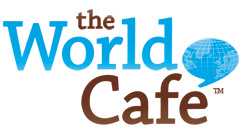We were kindly given permission to post the following piece by author Tom Beech.
The idea of “a more perfect union,” in the Preamble to the Constitution of the United States has has always rested on the principle of balance…balance of power among the three branches of the Federal Government, between the Federal Government and the States, between freedom, individual rights, interdependence and mutual responsibility.
Of late, it seems that we’ve lost sight of the importance of balance and in recent days, the proposed law passed by the Arizona State Legislature (mercifully vetoed by that State’s Governor) was at least for me, a stunning example of this. In the last few years our attention has been focused on the importance of “religious freedom,” the “right to bear arms,” the “rights of natural born citizens vs. those of immigrants,” the “rights of free enterprise.”
What has been lost in the furious debate about these freedoms, one of the founding tenants of our democracy, is that one person’s freedom cannot be expressed at the expense of another person. And we have developed amendments to the Constitution and a body of laws and regulations to safeguard this balance…balancing my freedom with yours. We have looked to government at the national, state and local levels to provide these safeguards.
But over the last 30 years or so, government has not played this role effectively. The behavior of the investment banking industry leading up to and following the market crash in 2008; the debate over gun violence; our current immigration policies and practices; the existing rules for campaigns for elective office; the debate over religious freedom and even over the role of government itself, are graphic examples of the inability of government to safeguard balance among competing interests and “freedoms.” Government officials at all levels are held captive by various interest groups, and the “fourth estate,” which historically played the important role of providing information and analysis of complex issues, is now chiefly interested in entertainment, sensationalism and short term financial gain for its owners.
Elected officials who have differing views on important issues facing us, only talk to the people who already agree with them and the people who will help them get reelected, and from that platform, preach to the rest of us about the “truth” according to them. Broadcasters shout at one another in prime time, apparently in the belief that this is “good theatre” that will hold our attention and feed the advertising budget that keeps them on the air.
Lost in this noise is any kind of reasoned public dialogue or civil discourse. Lost is the realization that more fundamental than my personal freedom is the idea that we have to live together in order for any sense of real freedom to survive. Lost is the fact that “freedom” we take from one another is in reality, tyranny.
Amidst all this noise, there are a growing number of quiet (and not so quiet) hopeful voices. And among these quiet (and not so quiet) voices is Parker Palmer, who has been listening, speaking and writing for years about the importance of balance and the living tension imbedded in any sense of balance. His latest book, Healing the Heart of Democracy, offers for our consideration, five “Habits of the Heart,” that in his words, “…are critical to sustaining a democracy.”
- An understanding that we are all in this together,
- An appreciation of the value of “otherness,”
- An ability to hold tension in life-giving ways,
- A sense of personal voice and agency,
- A capacity to create community.
These are ideas for each of us, in our families, book clubs, classrooms, community activities, boardrooms, congregations and halls of government to take into our hearts and into our daily lives. This is one way in which each of us can nurture the quiet (and not so quiet) revolution on which the survival of our democracy depends.
Tom Beech is recently retired from a long career in philanthropy and is now active in his home community of Kalamazoo, Michigan.



I read this post when it was posted back in 2014, I agreed with it then (although I didn’t comment) and I agree with it now in 2018. Consider that the ongoing debate in gun control is reduced to accusing the victims and the eagerness to require our underpaid teachers to carry weapons. In essence, forcing people that would rather not carry weapons, to carry weapons. Isn’t that tyranny?
The other issue is the dismantlement of our social and civic norms by the people that are serving in those capacities. The idea that government institutions are somehow the enemy is a development that will leave a lasting impact for years to come.